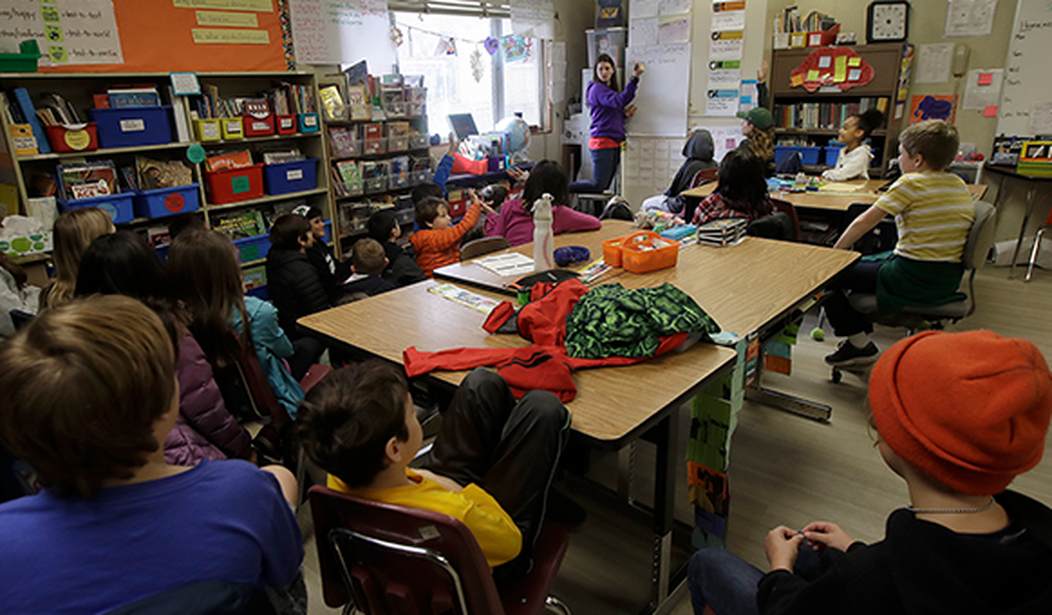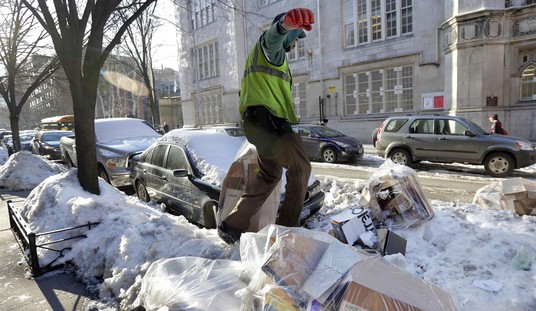Government-run schools keep failing.
It shouldn't surprise us. Monopolies rarely serve customers well.
People call them "public schools," but "government-run" is more accurate. After all, charter schools are available to the public. Privately run supermarkets are open to the public for more hours than "public" schools are.
International tests show American kids don't learn as much as kids in other countries. During the pandemic, they did even worse because our teachers unions kept schools closed.
It's even worse in my state, New York, where big government and unions thrive. Here, kids' tests scores are well below the national average. In New York City, scores are even lower.
But here's one dramatic exception: The aptly named Success Academy succeeds where government-run schools fail.
The chain, led by former Democratic City Councilwoman Eva Moskowitz, now runs more than 50 schools.
On math tests, they outperform every school in New York State. Yet Success Academy kids mostly come from low-income families.
"That is redefining American public education," says Success' LaMae de Jongh in my new video. "Our Black and Hispanic students outperformed their peers by double, triple percent in their math."
How? By trying new things.
At Success schools, principals spend time in every classroom, giving tips to teachers.
One teacher told us, "They're telling me things that I don't see."
"Some teachers don't like being watched and criticized," I say to Jongh.
"But they're getting better!" she replies. "When they get better, their scholars do better and the educators feel more successful. That's what you want!"
Success Academy's school day is longer. Kids typically stay until 4:30 p.m. Some stay later.
Some parents pull kids out because of the extra demands. "That's why their test scores are so high!" complain critics. "Dropouts raise average test scores for kids who remain."
Maybe they do. But for the thousands of kids at Success charters, the high expectations are a good thing.
Talking with children there, I was surprised when 7-year-olds told me they "look forward" to school! I never did. One told me that learning reading is "rockin' awesome!"
It's why lots of parents are desperate to get their kids into Success Academy. Almost 13,000 more families apply than the school has space for. So the school holds a lottery to determine who gets in.
The chain would like to offer its magic to more kids, but they aren't allowed to! "Progressive" politicians limit the number they can serve.
"I hate the privatizers. I want to stop them," said former mayor Bill de Blasio. He closed Harlem's most successful charter school.
The current mayor isn't as awful, but New York's cap on charter schools remains.
The education establishment just doesn't like competition.
Government school advocates say competition "takes money away" from government schools.
That is a lie.
It's true that enrollment at government-run schools is falling. More parents now homeschool and send kids to charters and private schools. But spending at government schools continues to increase. Government always spends more!
Also, as students leave, government schools are left with more money per pupil. That's because the government gives charters like Success $18,000 per student. Government-run schools get almost $36,000!
With half the money, Success Academy does better.
Most high school students never take Advanced Placement tests. Of those who take them in my state, roughly half pass.
But at Success Academy, all kids take the tests. And 80% pass!
"These kids must be miserable!" I tell Jongh. "They're working all the time."
"Why?" She laughs. "They're having fun learning."
Also, it's not schoolwork all the time. Success offers "Chess, debate, theater, music," she points out. "Those aren't add-ons; they are part of our day."
Success does make teachers work harder. Teacher turnover is high.
But so what? The goal is for the kids to succeed. At Success Academy, they do!
One student tells me, "It's unfair that not everybody gets this opportunity."
He's right. It is unfair.
All kids should have that choice.









Join the conversation as a VIP Member